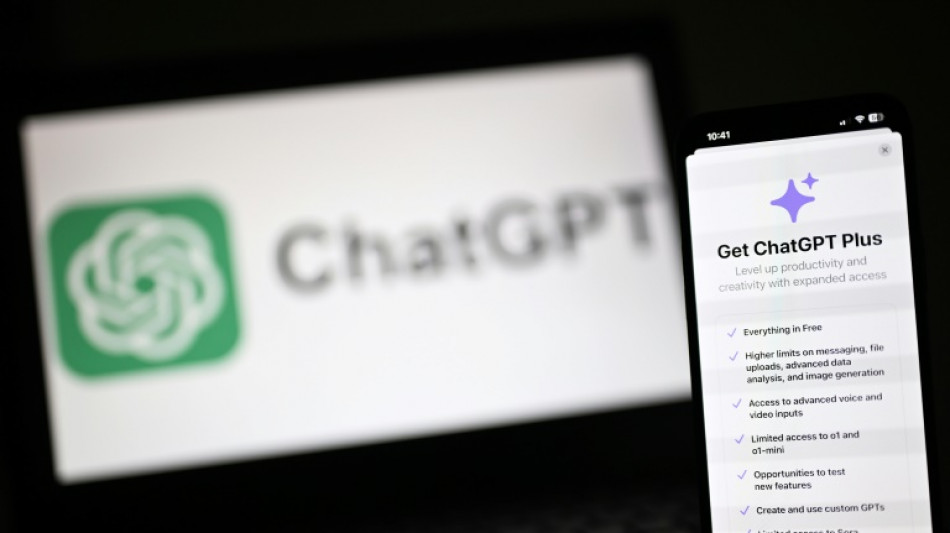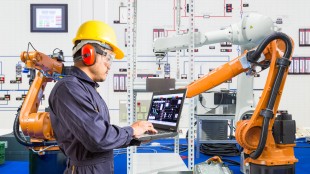
-
 South Korea outclass Iran in Asian Women's Cup opener
South Korea outclass Iran in Asian Women's Cup opener
-
Liverpool's Slot says his 'football heart' does not like set-piece trend

-
 Israel aims fresh attack at Tehran: latest developments in US-Iran war
Israel aims fresh attack at Tehran: latest developments in US-Iran war
-
Energy prices soar, stock markets slide on Iran war fallout

-
 'No indication' Iran nuclear installations hit: IAEA
'No indication' Iran nuclear installations hit: IAEA
-
Showdown looms between Tesla and German union

-
 Israel vows intensified attacks: latest developments in US-Iran war
Israel vows intensified attacks: latest developments in US-Iran war
-
France arrests activists blocking ship over alleged Russia uranium links

-
 Tech sovereignty and AI networks set to dominate mobile meet
Tech sovereignty and AI networks set to dominate mobile meet
-
Indian police clash with pro-Khamenei protesters in Kashmir

-
 Israel targets Hezbollah, Iran: latest developments in US-Iran war
Israel targets Hezbollah, Iran: latest developments in US-Iran war
-
Canada and India strike agreements on rare earth, uranium

-
 A rough guide to F1 rule changes for 2026
A rough guide to F1 rule changes for 2026
-
At least 25 killed at Pakistan's pro-Iran weekend protests

-
 Israel kills 31 in Lebanon, vows to expand strikes after Hezbollah fire
Israel kills 31 in Lebanon, vows to expand strikes after Hezbollah fire
-
Myanmar grants amnesty to over 7,000 convicted of 'terrorist group' support

-
 Riyadh's King Fahd stadium to host 2027 Asian Cup final
Riyadh's King Fahd stadium to host 2027 Asian Cup final
-
'Superman Sanju' toast of India after T20 World Cup heroics

-
 Travel chaos, but F1 season-opener in Australia 'ready to go'
Travel chaos, but F1 season-opener in Australia 'ready to go'
-
Lunar New Year heartache for Chinese team at Women's Asian Cup

-
 El Nino may return in 2026 and make planet even hotter
El Nino may return in 2026 and make planet even hotter
-
Somaliland's Israel deal could put Berbera port at risk

-
 Texas primaries launch midterm battle with Trump agenda at stake
Texas primaries launch midterm battle with Trump agenda at stake
-
How a Syrian refugee chef met Britain's King Charles

-
 Bangladesh tackle gender barriers to reach Women's Asian Cup
Bangladesh tackle gender barriers to reach Women's Asian Cup
-
Argentina's Milei says wants US 'strategic alliance' to be state policy

-
 'Sinners' wins top prize at Screen Actors Guild awards
'Sinners' wins top prize at Screen Actors Guild awards
-
New rules, same old suspects as F1 revs up for 2026 season

-
 World Cup tickets: Huge demand and sky-high prices
World Cup tickets: Huge demand and sky-high prices
-
List of key Actor Award winners

-
 Trump hunkers down after Iran strikes
Trump hunkers down after Iran strikes
-
China's leaders gather for key strategy session as challenges grow

-
 UK toughens asylum rules to discourage migration
UK toughens asylum rules to discourage migration
-
Israel hits Lebanon after Hezbollah fire, expanding Iran war

-
 CBS in turmoil as US media feels pressure under Trump
CBS in turmoil as US media feels pressure under Trump
-
Messi bags double as Miami battle back to down Orlando

-
 Greenland is 'open for business' -- kind of, says business leader
Greenland is 'open for business' -- kind of, says business leader
-
Canada's Carney to mend rift, boost trade as he meets India's Modi

-
 Crude soars, stocks drop after US strikes on Iran
Crude soars, stocks drop after US strikes on Iran
-
Iran war spreads across region as US, Israel suffer losses

-
 Miriam Margolyes tackles aging in Oscar-nominated short
Miriam Margolyes tackles aging in Oscar-nominated short
-
Recognition, not competition, for Oscar-nominated foreign filmmakers

-
 Israel, Hezbollah trade fire: latest developments in Iran war
Israel, Hezbollah trade fire: latest developments in Iran war
-
Israel strikes Tehran: latest developments in Iran war

-
 Trump vows to avenge first US deaths as Iran war intensifies
Trump vows to avenge first US deaths as Iran war intensifies
-
Habi Acquires Pulppo to Expand Leadership in Latin America's Residential Real Estate Market

-
 Who Is the Best Plastic Surgeon in Bellevue?
Who Is the Best Plastic Surgeon in Bellevue?
-
vMOX Merges with Advantage Communications Group

-
 Who Does the Cheapest Breast Augmentation in Florida?
Who Does the Cheapest Breast Augmentation in Florida?
-
MWC 2026: Amdocs Unveils CES26, an Agent-driven BSS-OSS-Network Suite, powered by the Amdocs aOS Cognitive Core


Italian paper prints fully-AI edition, but not to 'kill' journalism
In a world first, an Italian newspaper is printing a fully AI-generated edition for a month in what its director said Thursday was an experiment to "revitalise journalism, not to kill it".
Il Foglio, a daily broadsheet with an irreverent touch and a circulation of about 29,000, says it is the first newspaper in the world to print entire editions created through artificial intelligence, a nascent technology that is rapidly changing how newsrooms operate.
It began on Tuesday producing a four-page daily AI edition in print and online, alongside its normal edition, featuring about 22 articles and three editorials.
Put simply, the newspaper's 20-odd journalists ask a version of OpenAI's ChatGPT chatbot to write a story on a specific subject in a specific tone, and it produces a text using information scraped off the internet.
Examples this week included an analysis of Prime Minister Giorgia Meloni's speeches, an editorial on the recent phone call between Donald Trump and Vladimir Putin -- and a fashion story.
Il Foglio's director, Claudio Cerasa, explained to AFP the idea behind the project and how it is going.
- What do you want to accomplish with this? -
"The purpose is twofold. On the one hand, to move theory into practice. On the other hand, it's to test ourselves and thus understand what the limits of AI are, but also the opportunities, the boundaries that must be overcome and those that cannot be.
"All this can spring from a special newspaper like ours, because ours is a newspaper that has irreverent, ironic, creative writing. We do things that are not easily reproducible with a machine.
"It was a desire to flaunt our being special and experiment with something that no one in the world has experimented with, in a disruptive way, creating debate, but above all, first attempting ourselves to understand how AI can be integrated with natural intelligence."
- How does the process work in practice? -
"In the editorial meeting, many topics come up. Some of these topics are then covered not only by the normal newspaper, but also by the artificial newspaper.
"Every question asked to AI contains a request for a theme... a request for a tone: respectful, irreverent, scandalous, provocative. In the end we ask it to have the style of the paper.
"If there are too many mistakes, we change articles (start a new one). If there are just few errors, though, we leave them, because we also want to understand what the limits are."
- What lessons have you learned from the first few days? -
"Artificial intelligence exceeds all expectations. We have learned it can do things that can compete with what a human does, but we have learned that in the long run competition must create greater efficiency.
"Innovation must be accepted, because you can't stop it, it must be understood, governed, and turned into an opportunity for growth.
"If one day there's a demand for articles made only with AI, it must be accepted. But that demand must increase journalists' creativity, because journalists will have to start getting used to not doing things that a machine could.
"So it's a way to revitalise journalism, not to kill it."
- Are journalists in the newsroom worried? -
"No, everyone is entertained, everyone is curious and among other things, it's interesting that with this experiment we're reaching a much larger audience. There are many people who, thanks to AI, are discovering the traditional paper. The first day we had a 60 percent rise in sales.
"It's no coincidence that no major newspaper has thought of (doing) it, because it is obviously scary. Only a newspaper like ours, which is somewhat unique, can afford to do an experiment like this."
He added: "The articles written by human beings are better, because they always have something more, they always have an element of creativity, of connection, of making unpredictable links that AI does not have."
- What are readers saying? -
"The readers are 90 percent entertained, 10 percent worried because they say 'Make sure you never leave your natural intelligence because you are better.' But there's no one who says the operation is stupid and senseless.
"Everyone has understood the spirit."
B.Finley--AMWN